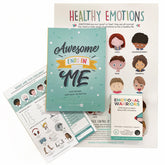30 Days of Gratitude
“Dozens of (scientific) studies have found that gratitude can improve well-being, can help people curb depression and anxiety, improve cholesterol and get better sleep”
Prof. Robert Emmons, The University of California
You have probably figured out that it is in human nature to focus more on the things that go wrong in our lives.
It’s not your fault, we are pre-disposed to think like this. It is called “negativity bias” – your brain is simply built with a greater sensitivity to unpleasant news. The bias is so automatic that it can be detected at the earliest stage of the brain’s information processing.
One study by John Cacioppo, at Ohio State University demonstrated that the brain reacts more strongly to stimuli it deems negative, he detected a greater surge in electrical activity in the brain’s cerebral cortex, that reflects the magnitude of information processing taking place. Which showed that our attitudes are more heavily influenced by downbeat news than good news.
We have evolved like this because our survival depended on our skill at dodging danger. Systems were developed in the brain that helped us to notice danger and respond to it.
But we aren’t being chased by sabre toothed tigers these days, and with the ever present world of instant news we are bombarded with unpleasant news constantly. So our negativity bias is overactive and overwhelmed!
There is a super easy and effective way we can retrain our brains to focus on what is going right in our lives, and help us to be more resilient in the times when things go wrong…. by practising gratitude.
Not only does it help us to focus on the positive but it also has so many amazing benefits to our minds AND our bodies, and it is strongly and consistently associated with GREATER HAPPINESS!
It can lessen symptoms of depression and anxiety, strengthen social connections, increase empathy and compassion, improves physical health and resilience, and increases productivity.
Find Out More BenefitsGratitude triggers positive feedback loops
Regularly writing in a gratitude journal can increase your long-term well-being by more than 10 percent, and when we feel more grateful, we notice more to be grateful for and we express our gratitude in other ways, like in our personal relationships.
Sonja Lyubomirsky is a scientist who researches what determines happiness… her findings suggest 10% is down to circumstances, 50% is genetically pre-determined or set point, and 40% is through intentional activity. So a whopping 40% of our happiness is within our ability to control. We can increase or decrease our happiness levels by what we DO and how we THINK. So starting a gratitude practice to change the way we view the world is worth doing, no?!
Sometimes when we are just starting to actively practice gratitude, we get stuck on what we can be grateful for, so I have put together this handy printable guide in a 30 Day Gratitude Challenge to do just that! This is suitable for ALL AGES!

Download and print out this FREE guide and join us as we spend the next 30 days challenging ourselves to look for the good and look after ourselves. You can join us by posting on our Facebook page or in our Gratitude Group or tagging us on Instagram. Use the hashtags #30daysofgratitude #awesomeinc and #resilientme so we can follow you!














